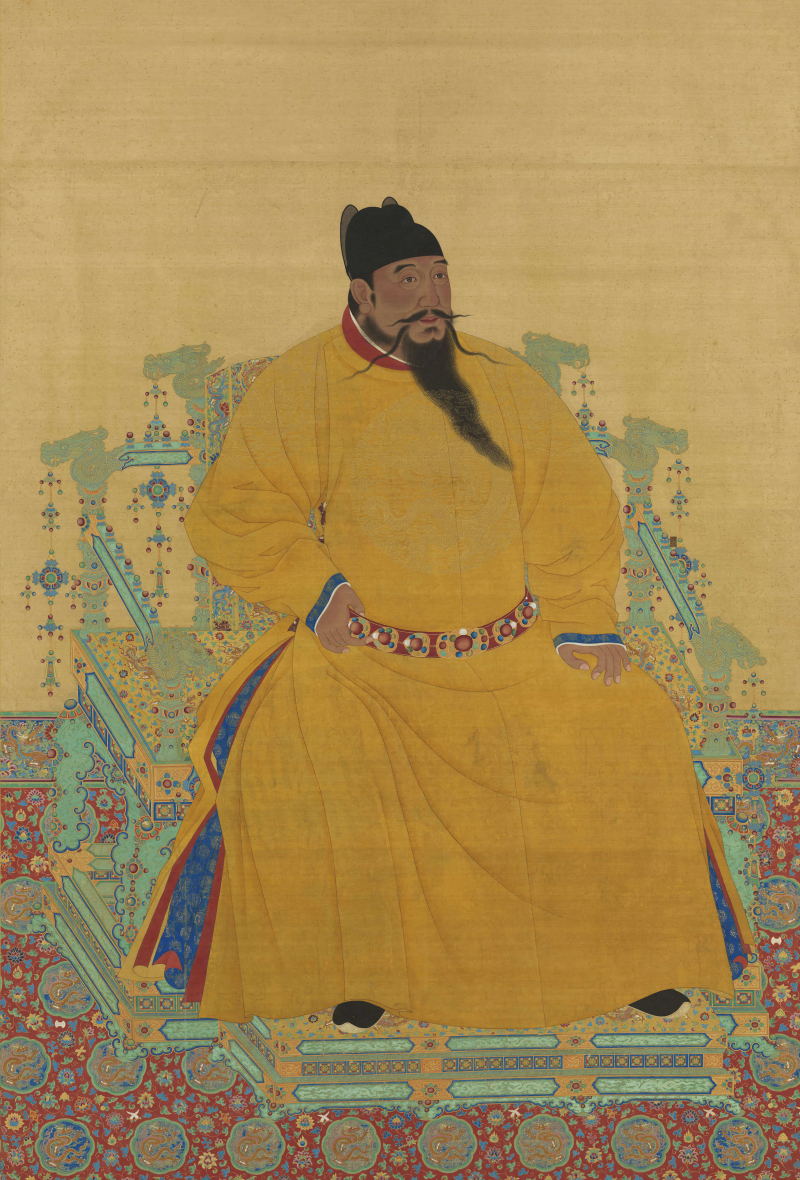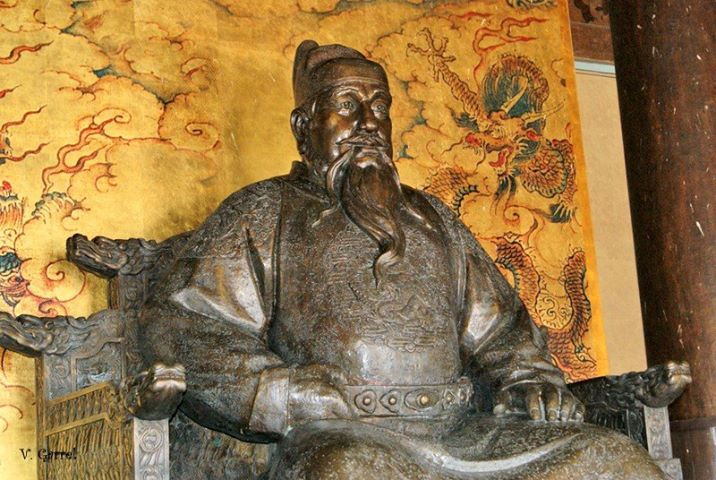Yongle Emperor (1402 AD–1424 AD)

The third ruler of the Ming dynasty and fourth son of Emperor Hongwu, who established the Ming dynasty, Ming Chengzu is renowned as the Yongle Emperor. Historical writings also refer to him as Zhu Di. Yongle Emperor took the throne from his own nephew by force rather than through inheritance. His reign lasted from 1402 AD to 1424 AD.
Despite the fact that he gave his kingdom the name "Yongle," which means "everlasting pleasure," in actuality he was a cruel tyrant who instituted little social improvements. Prior to Ming Chengzu, emperors had approved the practice of executing the families of their political rivals, however, Yongle Emperor extended this to the execution of their friends and teachers. Furthermore, Emperor Yongle also initiated inhumane behavior when he ordered his concubine to be killed after the emperor's death. Many people in the Forbidden City were horrified to see the death of an emperor in several dynasties after Yongle ruled.
We cannot, however, ignore Yongle's contributions to China's progress and wealth throughout the Ming Dynasty. Many of Yongle's military expeditions further subdued the danger posed by the northern Mongols, tribes that were left over from the previous Yuan dynasty. His reforms in the military, education, and economy had a significant positive impact on the empire. He also spearheaded a number of measures that aided trade, notably the reopening of China's Grand Canal for trade, which now is a vital economic connection. Under Yongle's command, the Chinese navy also sailed throughout Asia, forging several diplomatic ties and even making it as far as Africa.
Chengzu's accomplishments are widely accessible to visitors to China today through some of the nation's most well-known sights. Emperor Yongle was responsible for relocating the imperial seat from Nanjing to Beijing. Furthermore, he also ordered the construction of the Forbidden City and began the construction of the Great Wall of the Middle Ages.
Yongle Emperor's reign left the history of China with the Yongle Encyclopedia, the largest encyclopedia on paper. It is considered to hold a milestone in Chinese history because it contains the respectable culture of China.
To conclude, Yongle Emperor of Ming:
- established the Ming dynasty and reigned from 1402 AD to 1424 AD.
- was a cruel tyrant that extended this to the execution of their friends and teachers.
- Yongle's contributions to China's progress and wealth throughout the Ming Dynasty include reforms in the military, education, and economy.
- ordered the construction of the Forbidden City and began the construction of the Great Wall of the Middle Ages.
- produced the largest encyclopedia on paper "the Yongle Encyclopedia".
















